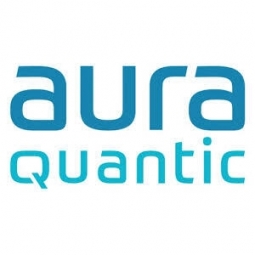Technology Category
- Platform as a Service (PaaS) - Application Development Platforms
- Sensors - Utility Meters
Applicable Industries
- Education
- Telecommunications
Applicable Functions
- Human Resources
- Product Research & Development
Use Cases
- Inventory Management
- Water Utility Management
Services
- System Integration
About The Customer
EPM Group Empresas Públicas de Medellín is a Colombian public utility group made up of companies located in Central America, Chile, Mexico, the United States, Spain, and Colombia. The group offers services including electricity, natural gas, drinking water, basic sanitation, garbage collection and disposal, and information and communication technologies. These services improve the lives of more than 13.5 million citizens. EPM’s strategy is to grow with people, with emphasis on sustainability. Corporate social responsibility, effective corporate governance, long-term planning, and technical, legal, financial, and managerial rigour are the main pillars of their strategy. EPM contributes to the development of a prosperous environment, promoting a respectful business performance with importance on the economic, environmental, and social consequences of their actions.
The Challenge
EPM Group Empresas Públicas de Medellín, a public utility group providing services like energy, gas, water, and waste management, faced several challenges in their operations. The implementation of a digital platform for the EPM Shared Services center was a key part of the national plan to achieve synergies, economies of scale, savings, and standardization. However, during the creation of this new service area, several fundamental problems were detected. These included a lack of unified processes for support activities throughout the group, resulting in work duplication and dispersed functions. There were multiple technological platforms to support transactional activities in the various companies that make up the EPM Group. Synergies and economies of scale were lost in contracts related to similar activities in EPM and its subsidiaries. The resources used and activity support indicators did not correspond with what you would expect from a business group the size of EPM. The incorporation of new acquisitions could not be carried out efficiently due to the lack of standardized and unified best practices across the entire group. The generation of group reports was complex and involved many manual activities. The structure by functions did not support continuous improvement or promote innovation in support activities.
The Solution
EPM Group adopted a strategy based on self-management to address these challenges. Teams working on organizational culture and business communications structured the fundamental idea of self-management, focused on all levels of education and responsibility within the organization and for external users. By implementing the digital platform, EPM significantly improved the service and relationship with its internal and external customers and suppliers. They evolved from phone calls, physical documentation, and emails to a platform of self-management and the online management of pending tasks and unified notifications. The internal clients could initiate different types of processes, keep abreast of the status of their applications, and track running and completed processes. The external customers now had the option to start processes from the comfort of their homes. The platform gave suppliers an immediate link to the ongoing processes, reducing process times and positively impacting the environment thanks to the significant reduction in paper documents required for the processes. This also generated economic savings for the suppliers by reducing the amount of travel to hand deliver documents.
Operational Impact
Quantitative Benefit

Case Study missing?
Start adding your own!
Register with your work email and create a new case study profile for your business.
Related Case Studies.

Case Study
Vodafone Hosted On AWS
Vodafone found that traffic for the applications peak during the four-month period when the international cricket season is at its height in Australia. During the 2011/2012 cricket season, 700,000 consumers downloaded the Cricket Live Australia application. Vodafone needed to be able to meet customer demand, but didn’t want to invest in additional resources that would be underutilized during cricket’s off-season.

Case Study
SKT, Construction of Smart Office Environment
SK T-Tower is the headquarters of SK Telecom. Inside the building, different types of mobile devices, such as laptops, smartphones and tablets, are in use, and with the increase in WLAN traffic and the use of quality multimedia data, the volume of wireless data sees an explosive growth. Users want limitless Internet access in various places in addition to designated areas.







